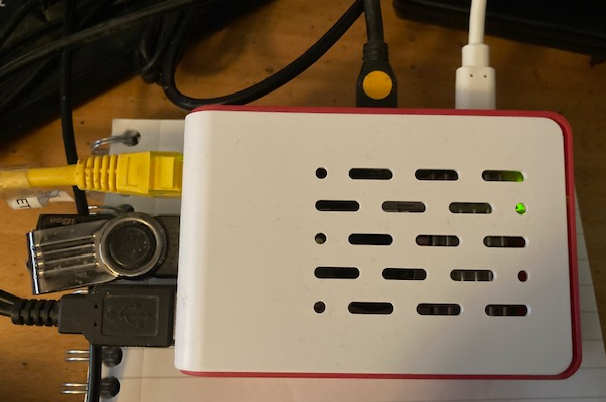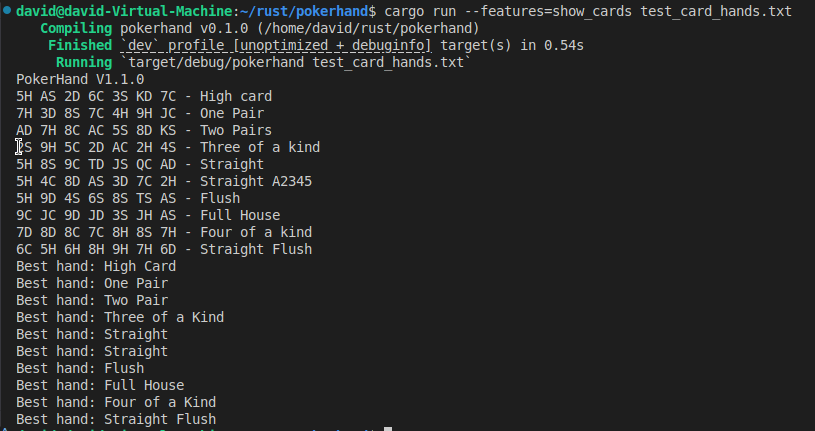How fast is a Raspberry Pi 5?
 I recently bought one with 8 GB RAM pictured above. I haven’t got an SSD for it yet so am still pottering about with an SD Card.
I recently bought one with 8 GB RAM pictured above. I haven’t got an SSD for it yet so am still pottering about with an SD Card.
I’ve installed VS Code, clang. and Rust along with the VS Code extensions Rust-Analyzer and codelldb.
Out of curiosity I compiled and ran a Rust program that reads in a text file of 1,000 lines of text with each line holding 7 random cards like this: AH 6D 2C 4S JD QH QC.
The idea is to load the file into RAM then process each line and determine the best poker hand.
On my PC 11th Gen Intel(R) Core(TM) i7-11700K @ 3.60GHz (which runs Windows 11), I compared running the Rust program in Windows 11, on Ubuntu 24.04 LTS running in a Hyper-V VM on the same PC and on the Raspberry Pi 5 using it’s own Debian (Bookworm) version.
Here are the times per hand.
- Windows: 175 ns.
- Ubuntu on Hyper-V 125 ns
- Raspberry Pi 5: 175 ns.
You can download the project with the test cards from GitHub. This link is a zip file containing the project file.
To run it in release in VS Code, in the terminal type in
cargo run --release 1000_card_hands.txt
Or you can view the test cards which include the results with commemts in the test file. No need to run it release.
cargo run --features=show_cards test_card_hands.txt
What is so suprising is that the time on Windows and Rapberry Pi 5 are the same. Windows is running a virus checker (Windows Defender) and I guess that might slow it a bit.



 t’s quite surprising that in this day and age, that there is still 32-bit software in use. Visual Studio is a prime example. Windows has been 64-bit for quite a while now.
t’s quite surprising that in this day and age, that there is still 32-bit software in use. Visual Studio is a prime example. Windows has been 64-bit for quite a while now. I played with a couple of free packages today. I can recommend hardinfo. (sudo apt install hardinfo to install then hardinfo to run ) though less about the benchmarks than the information it gives on your system.
I played with a couple of free packages today. I can recommend hardinfo. (sudo apt install hardinfo to install then hardinfo to run ) though less about the benchmarks than the information it gives on your system. It was very easy. This was onto my Pi 4 running 64-bit Raspberry Pi OS.
It was very easy. This was onto my Pi 4 running 64-bit Raspberry Pi OS.
